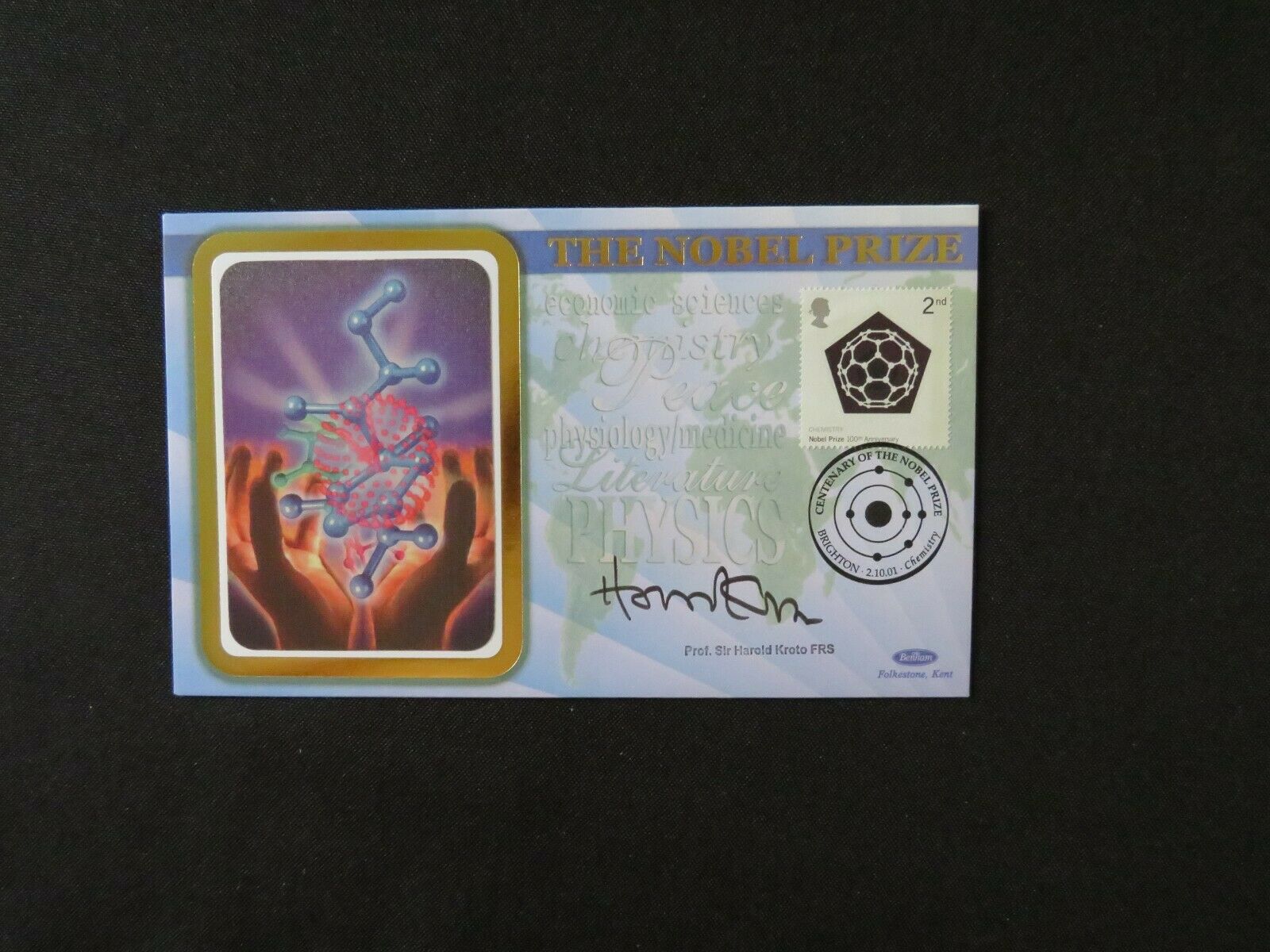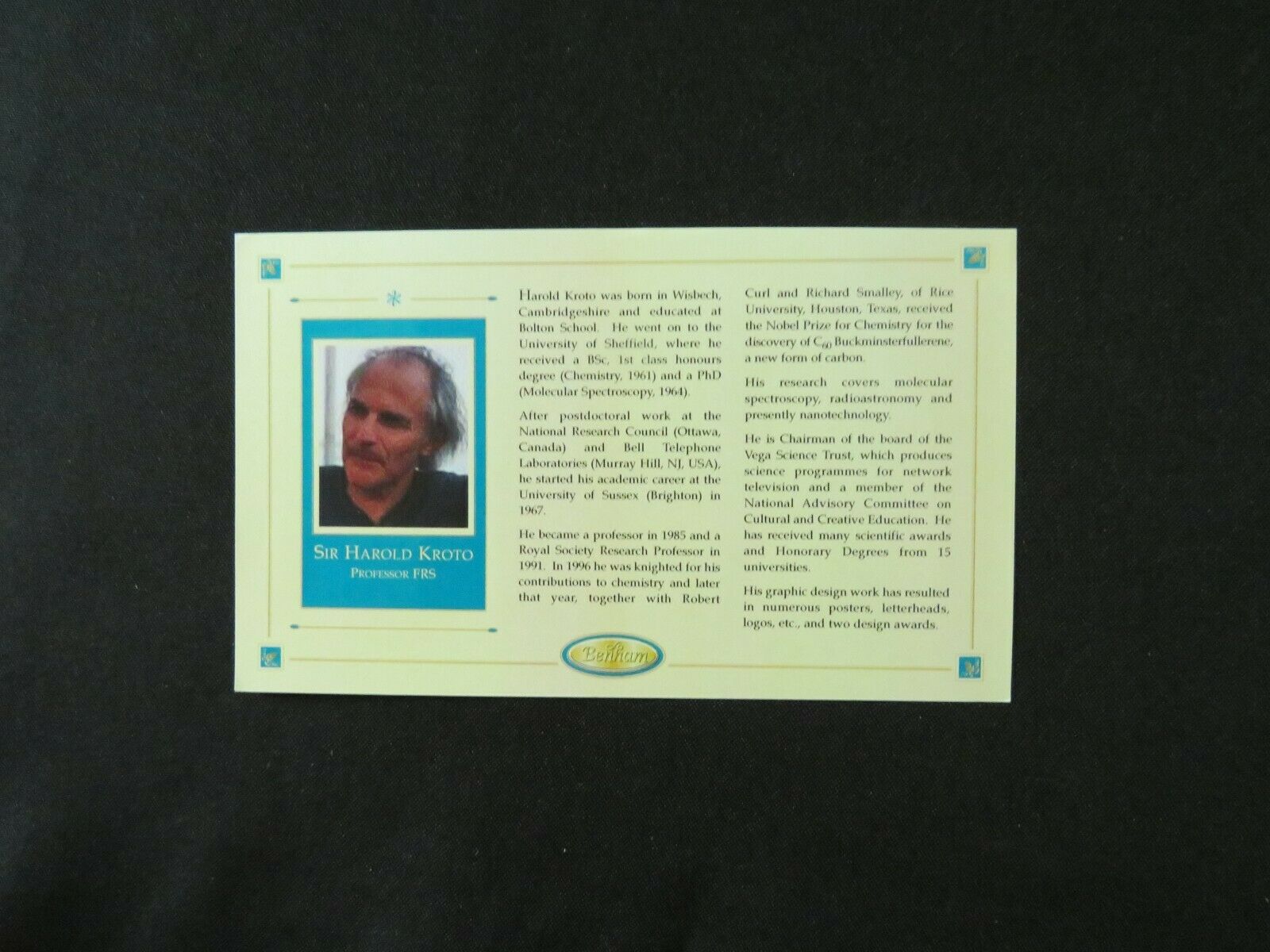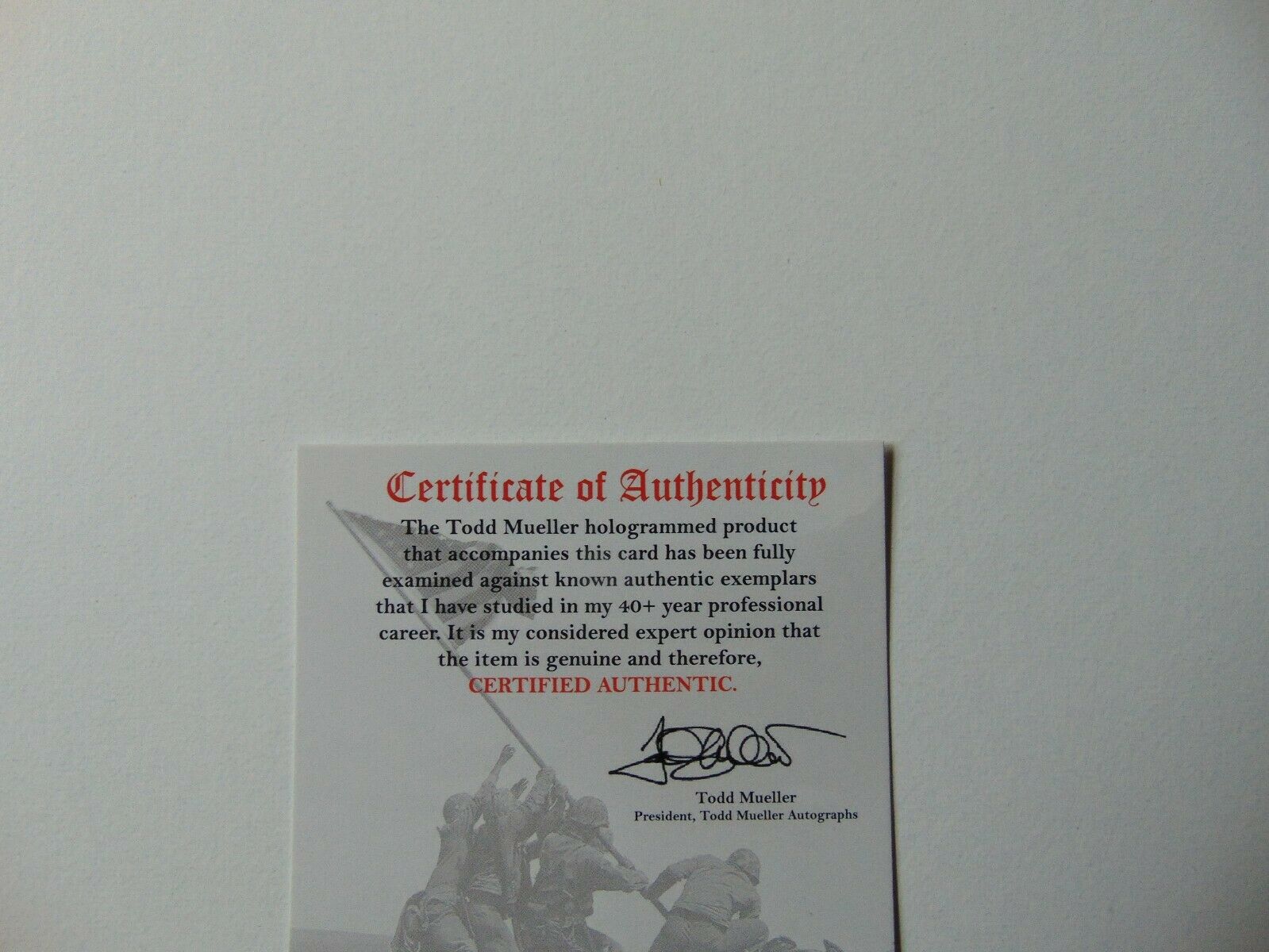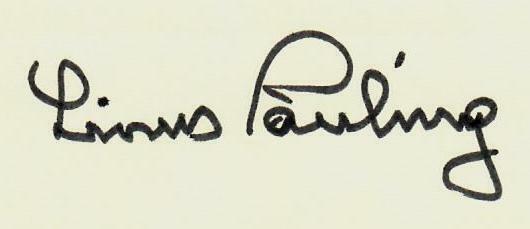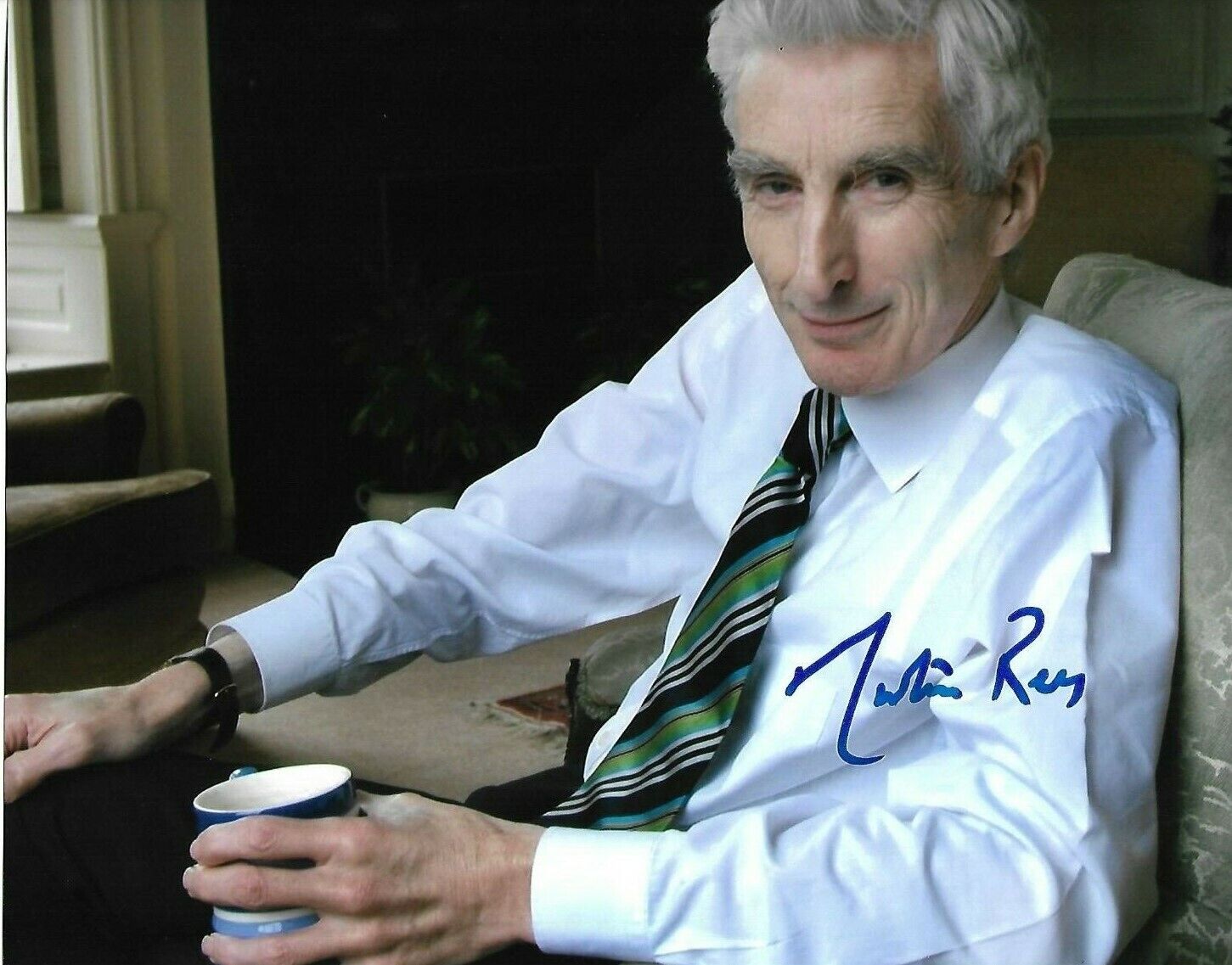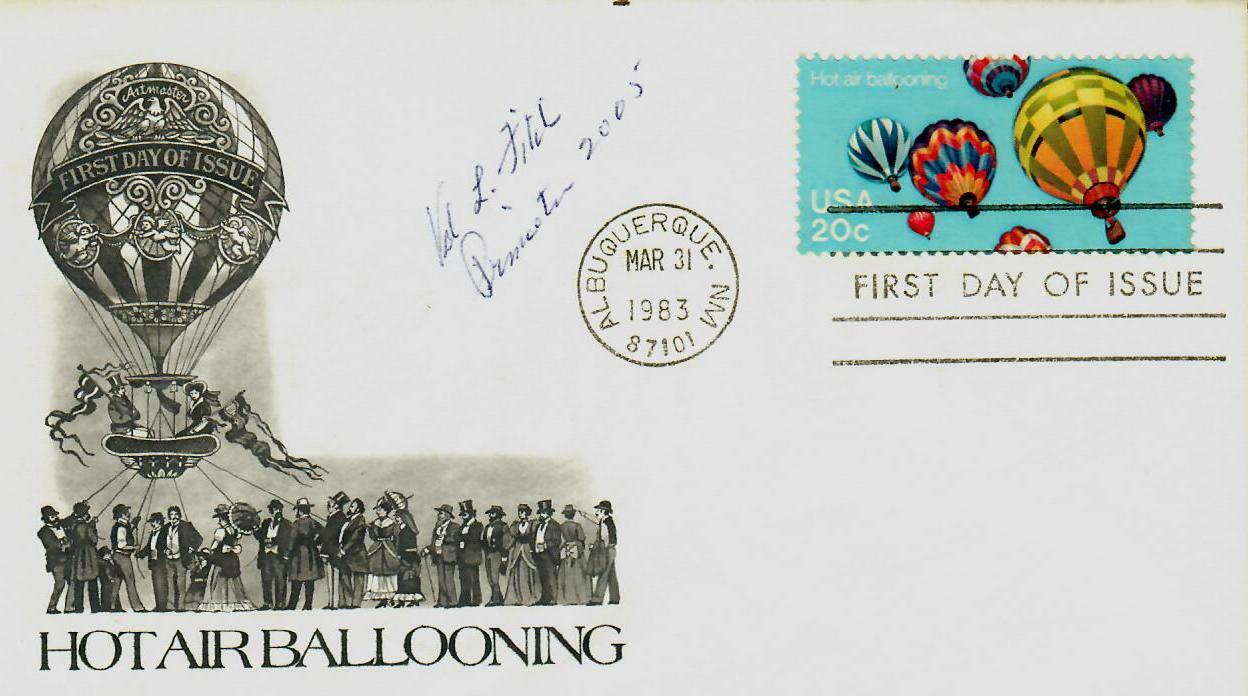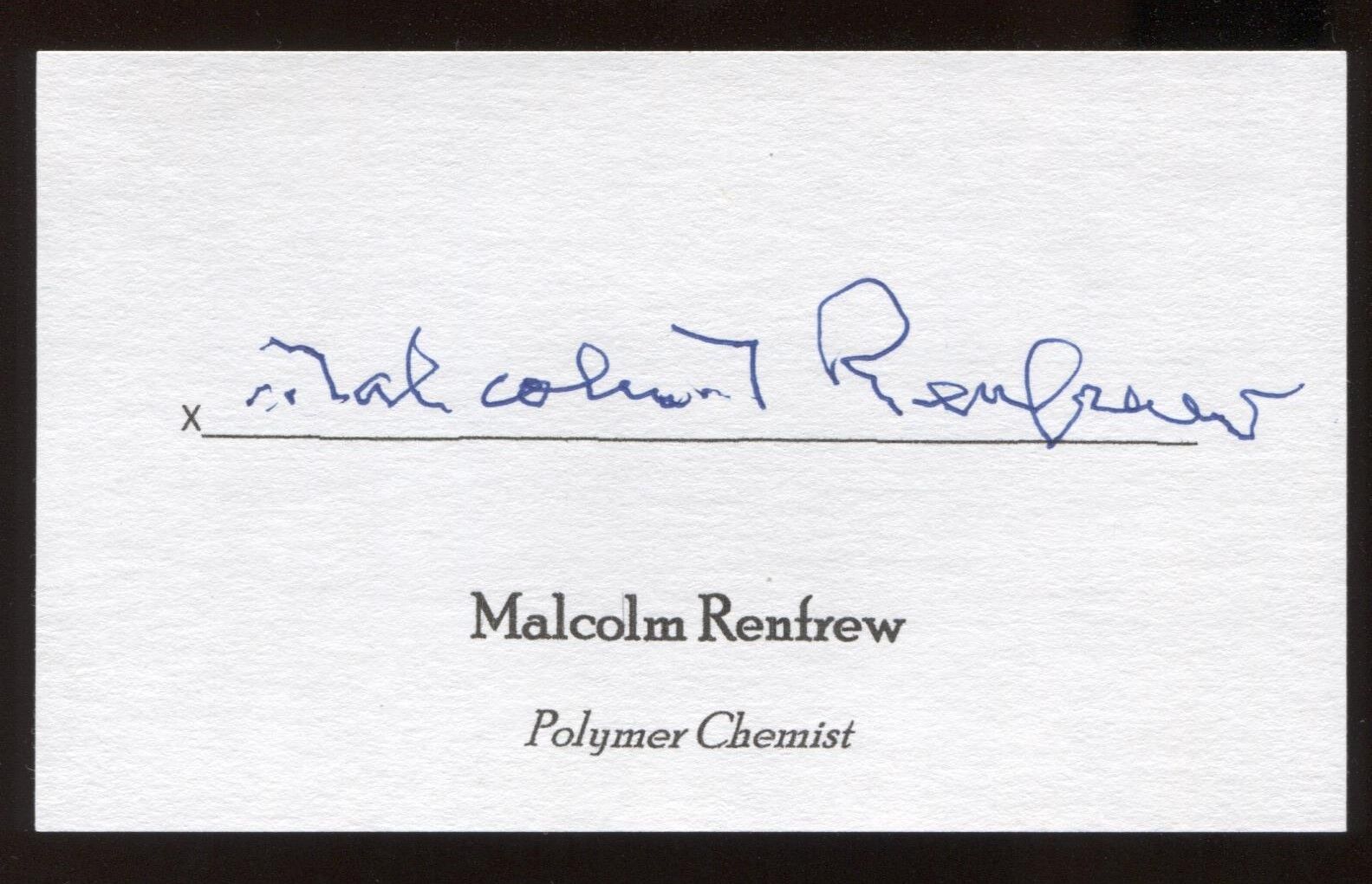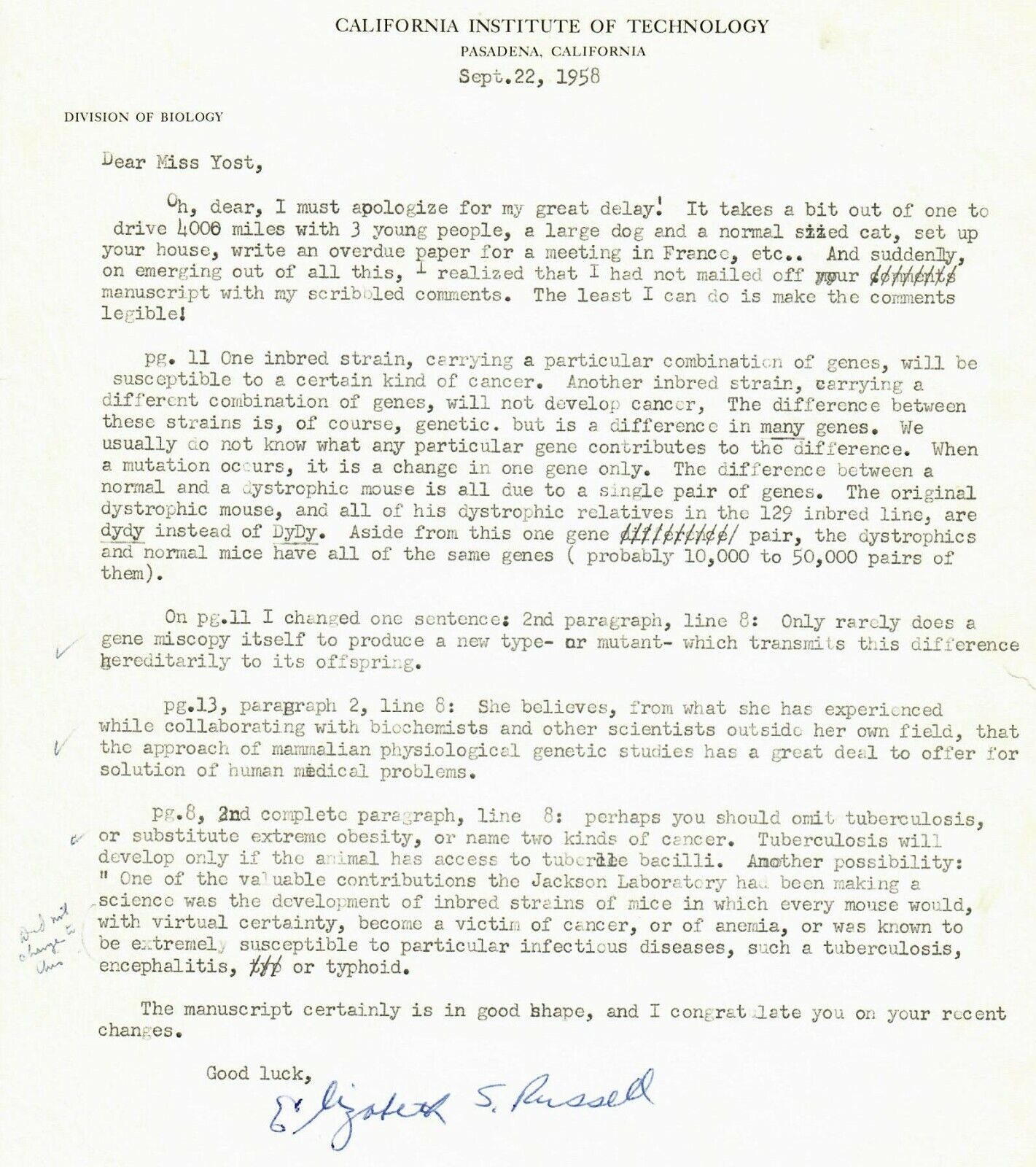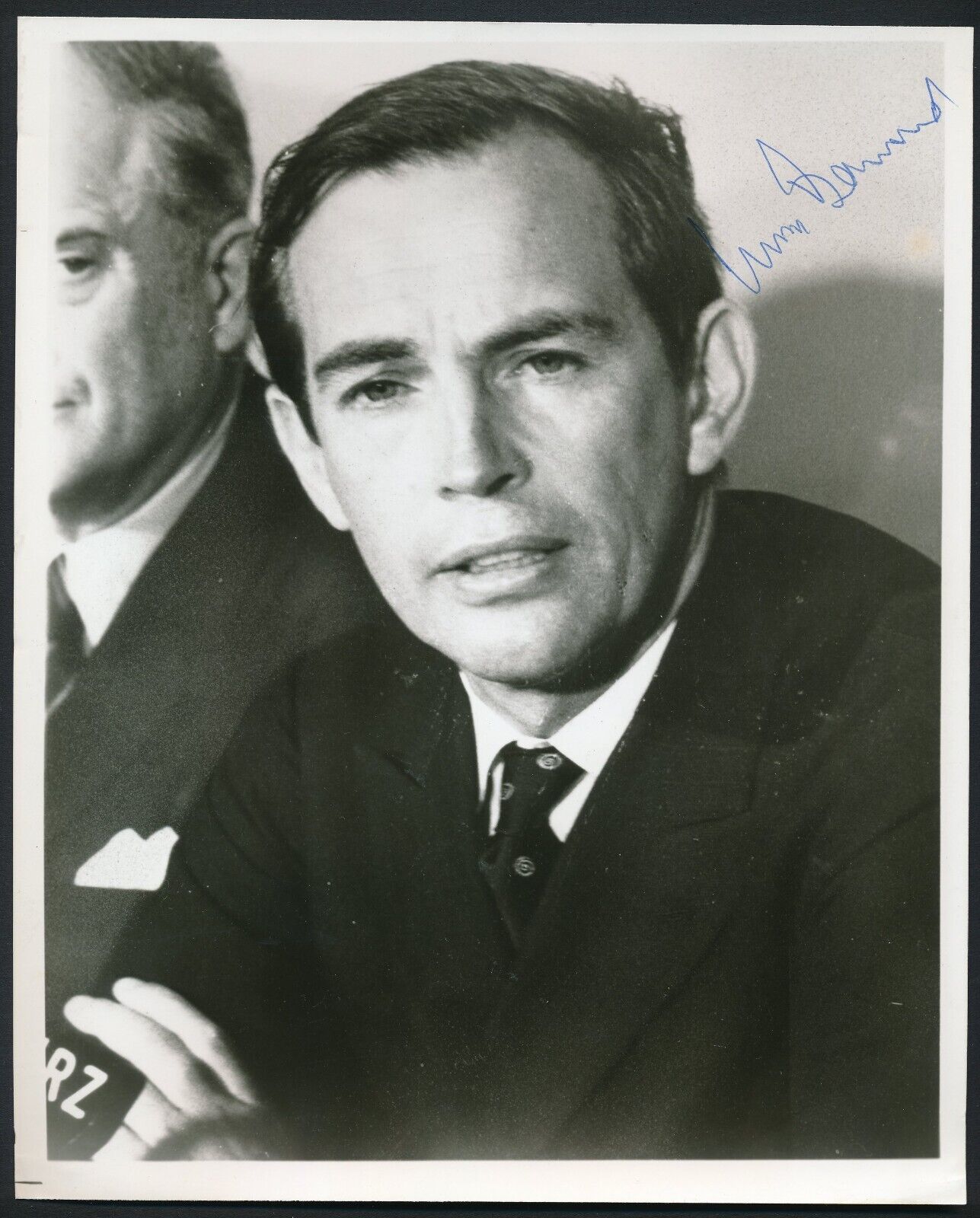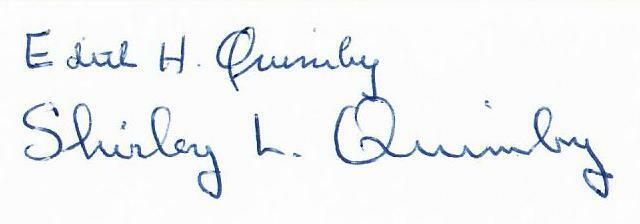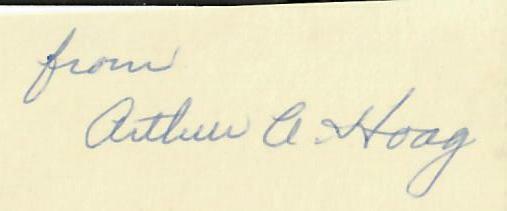-40%
"Nobel Prize in Chemistry" Harry Kroto Signed 4X7 Embossed Card Todd Mueller COA
$ 52.79
- Description
- Size Guide
Description
Up for auction the"Nobel Prize in Chemistry" Harry Kroto Signed 4X7 Embossed Card.
This
item
is certified authentic by Todd Mueller Autographs and comes with their Certificate of Authenticity.
ES-6261
Sir Harold Walter Kroto
FRS
(born
Harold Walter Krotoschiner
; 7 October 1939 – 30 April 2016), known as
Harry Kroto
, was an English
chemist
. He shared the 1996
Nobel Prize in Chemistry
with
Robert Curl
and
Richard Smalley
for their discovery of
fullerenes
. He was the recipient of many other honors and awards. Kroto held many positions in academia throughout his life, ending his career as the Francis Eppes Professor of Chemistry at
Florida State University
, which he joined in 2004. Prior to this, he spent approximately 40 years at the
University of Sussex
.
Kroto promoted science education and was a critic of religious faith. Kroto was born in
Wisbech
,
Cambridgeshire
, England, to Edith and Heinz Krotoschiner, his name being of
Silesian
origin. His father's family came from
Bojanowo
, Poland, and his mother's from Berlin. Both of his parents were born in Berlin and fled to Great Britain in the 1930s as
refugees
from Nazi Germany; his father was
Jewish
. Harry was raised in
Bolton
while the British authorities interned his father on the
Isle of Man
as an
enemy alien
during World War II and attended
Bolton School
, where he was a contemporary of the actor
Ian McKellen
. In 1955, Harold's father shortened the family name to Kroto.
As a child, he became fascinated by a
Meccano
set. Kroto credited Meccano, as well as his aiding his father in the latter's balloon factory after World War II – amongst other things – with developing skills useful in scientific
research
. He developed an interest in
chemistry
,
physics
, and
mathematics
in secondary school, and because his
sixth form
chemistry teacher (
Harry Heaney
– who subsequently became a university professor) felt that the
University of Sheffield
had the best chemistry department in the United Kingdom, he went to Sheffield. Although raised Jewish, Harry Kroto stated that religion never made any sense to him. He was a humanist who claimed to have three religions: Amnesty Internationalism, atheism, and humour. He was a distinguished supporter of the
British Humanist Association
. In 2003 he was one of 22 Nobel Laureates who signed the
Humanist Manifesto
. In 2015, Kroto signed the
Mainau Declaration 2015 on Climate Change
on the final day of the 65th
Lindau Nobel Laureate Meeting
. The declaration was signed by a total of 76 Nobel Laureates and handed to then-President of the French Republic,
François Hollande
, as part of the successful
COP21 climate summit
in Paris. Kroto was educated at Bolton School and went to the University of Sheffield in 1958, where he obtained a first-class honours BSc degree in Chemistry (1961) and a PhD in Molecular Spectroscopy (1964). During his time at Sheffield he also was the art editor of
Arrows
– the University student magazine, played tennis for the University team (reaching the UAU finals twice) and was President of the Student Athletics Council (1963–64). Among other things such as making the first
phosphaalkenes
(compounds with carbon phosphorus double bonds), his doctoral studies included unpublished research on
carbon suboxide
, O=C=C=C=O, and this led to a general interest in
molecules
containing chains of carbon atoms with numerous multiple bonds. He started his work with an interest in
organic chemistry
, but when he learned about
spectroscopy
it inclined him towards
quantum chemistry
; he later developed an interest in
astrochemistry
.
After obtaining his PhD, Kroto spent two-years in a postdoctoral position at the
National Research Council
in Ottawa, Canada carrying out further work in molecular spectroscopy, and also spent the subsequent year at
Bell Laboratories
in New Jersey (1966–1967) carrying out Raman studies of liquid phase interactions and worked on quantum chemistry.
